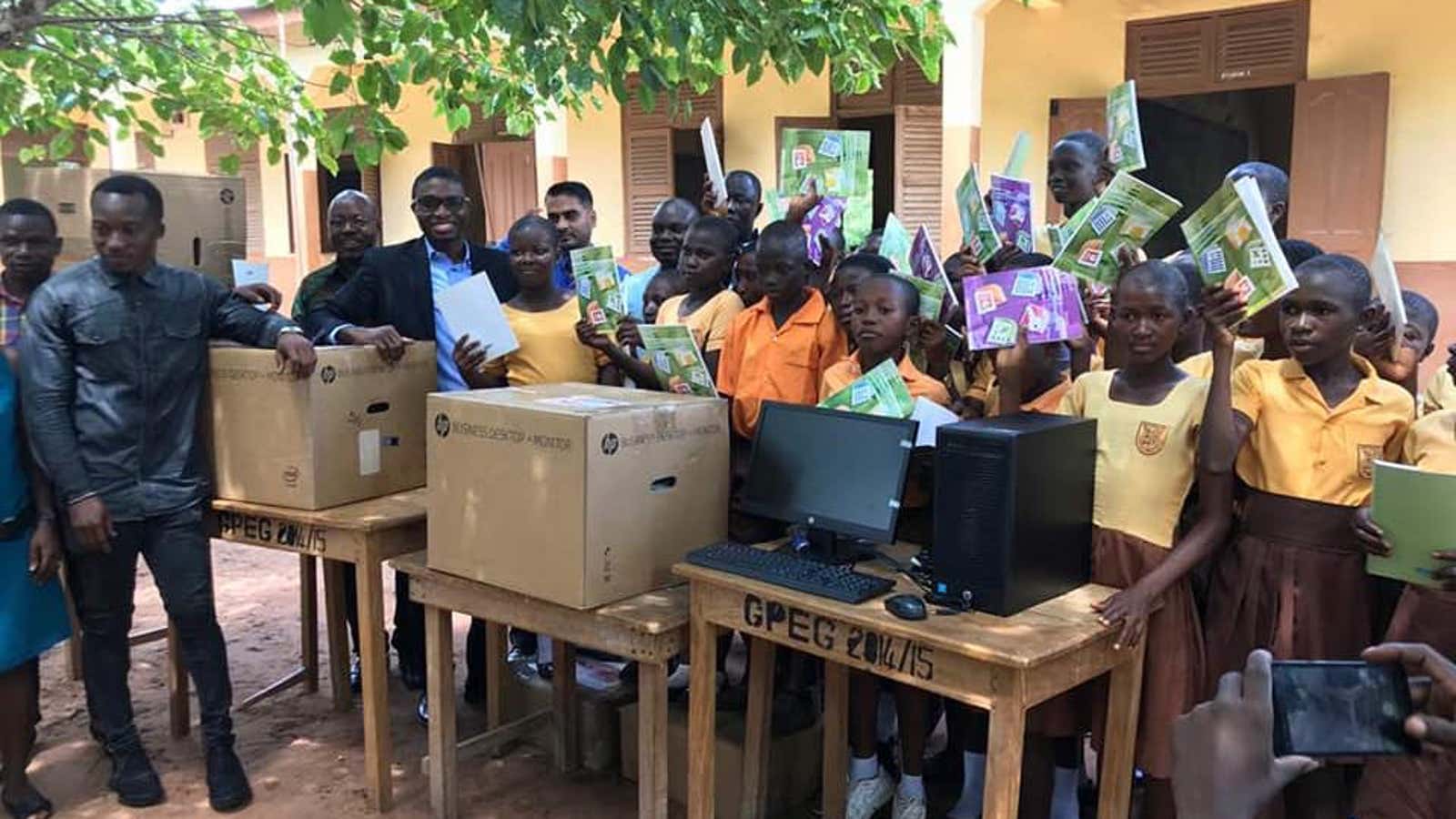A lot has changed in the life of Richard Appiah Akoto in the fortnight since he posted photos of himself on Facebook drawing a Microsoft Word processing window on a blackboard with multi-colored chalk, to teach his students about computers—which the school did not have. The photos went viral on social media and media stories like Quartz’s went all around the world.
Akoto, 33, is the information and communication technology (ICT) teacher at Betenase M/A Junior High School in the town of Sekyedomase, about two and half hours drive north of Ghana’s second city, Kumasi.
The school had no computers even though since 2011, 14 and 15-year-olds in Ghana are expected to write and pass a national exam (without which students cannot progress to high school) with ICT being one of the subjects.
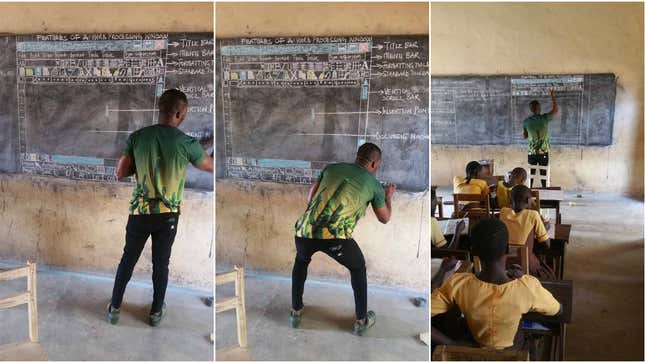
The story of the school and Twitter pressure from prominent players in the African tech space drew a promise from Microsoft to “equip [Akoto] with a device from one of our partners, and access to our MCE program & free professional development resources on.” To fulfill this promise, the technology giant flew Akoto to Singapore this week where he is participating in the annual Microsoft Education Exchange.
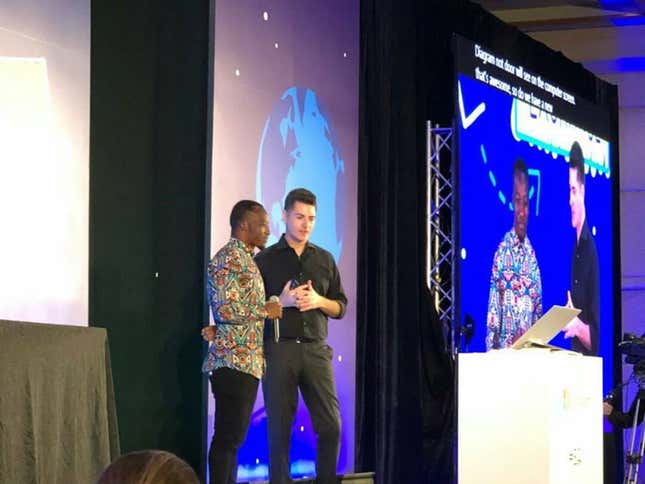
He posted on Facebook [where he goes by the name Owura Kwadwo Hottish]: “Just arrived in Singapore for the Microsoft Global Education Exchange Summit. Looking forward to learn something new.”
The spectacle of Akoto explaining how computers work—without computers, prompted a slew of promises to donate computers to the school. A benefactor at UK’s University of Leeds donated a brand new laptop and this was followed days later by another donation of five desktop computers for the school and the gift of a laptop for Akoto’s personal use by NIIT, a computer training school headquartered in Accra, the capital of Ghana.
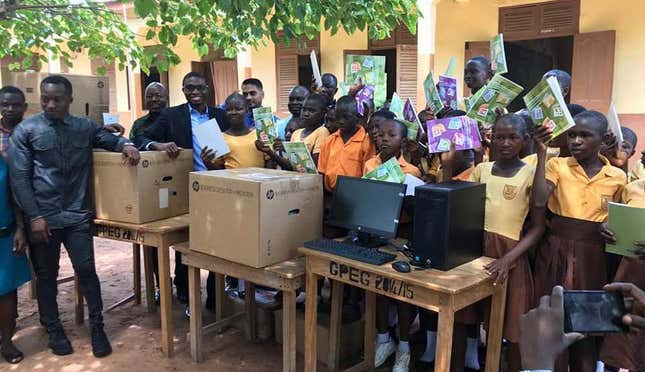
Many have called for Akoto to be given Ghana’s ‘Best National Teacher’, an annual award for teachers that among other things comes with a prize of three-bedroom house at a location of choice.
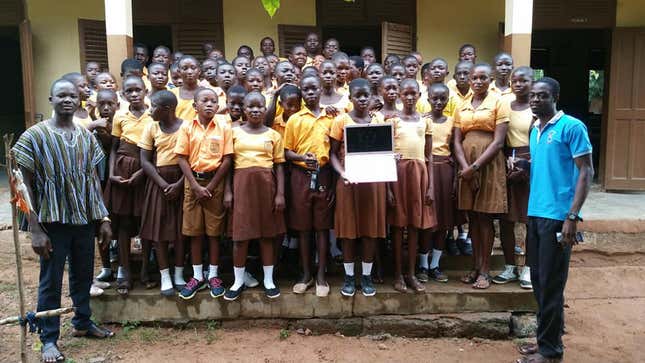
While Akoto has been described as an inspiration for teachers in Africa, what he does is symptomatic of an under-resourced dysfunctional public school system. Across the continent, many poor parents are forced to choose private schools over free public primary schools due to this lack of resources in government-owned schools.
